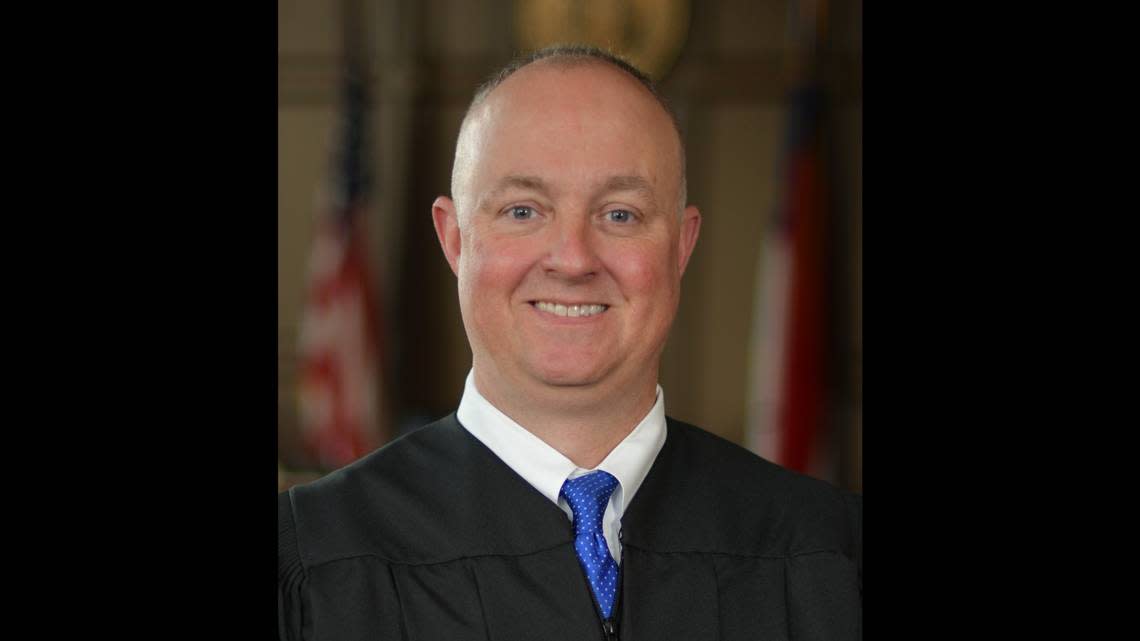Could NC woman found guilty of DWI use the 4th Amendment to fight her arrest?
An Orange County DWI conviction could be overturned after a higher court ruled the driver’s 2019 arrest violated her Fourth Amendment rights against illegal search and seizure.
The Oct. 18 decision by the N.C. Court of Appeals takes issue with the moment at which Durham resident Jessica Eagle submitted to an Orange County deputy’s authority before her Nov. 14, 2019, arrest.
Orange County judges ruled that Eagle was able to leave until the moment when the deputy took her driver’s license.
However, the Appeals Court disagreed unanimously, with Judge Darren Jackson writing for the three-judge panel that the deputy actually detained, or “seized,” Eagle when the deputy parked her patrol car behind Eagle’s car and activated the blue lights.
“What started as a simple traffic stop could have escalated to something much worse,” Jackson said in the ruling. “Defendant made the only safe and reasonable choice available by remaining in her car at the scene.”
Citing a 2006 case, Jackson said Fourth Amendment rights are enforced through the “exclusionary rule,” which says evidence obtained from an unconstitutional search or seizure cannot be admitted in court.
The ruling sends the case back to Orange County Superior Court, where the case could be dismissed or scheduled for a new trial.
Court records showed Eagle only has a Jan. 23 court date on an unrelated charge of assault with a deadly weapon with intent to kill inflicting serious injury. Eagle is accused of assaulting a Chapel Hill man with a knife earlier this year, records showed.
The News & Observer’s efforts to reach Eagle’s attorneys, James Rainsford and Cyrus Griswold, by phone and email were unsuccessful.

Blue lights, DWI charges
According to court documents, Eagle, a 29-year-old Durham resident, pulled up to the closed gate blocking the driveway of Maple View Agricultural Center west of Carrboro around 3:19 a.m. on Nov. 14.
Orange County Sheriff’s Deputy Rashida Belk, who was in the parking lot of the nearby Maple View Country Store, saw Eagle’s white sedan stop and slowly drove by to see if the driver was turning around.
Belk then backed up her patrol car and pulled in about 10 feet behind Eagle’s car, court documents state. She turned on her blue lights, and sat in the car for a minute to give the license plate number to dispatchers. The ruling noted that Belk did not immediately exit the car to conduct a welfare check.
In court, Belk conceded she thought Eagle was lost and did not see any crimes being committed or have “reasonable suspicion” to stop Eagle. She turned on the blue lights, Belk said, because it was dark and her cruiser was partly in the traffic lane on Dairyland Road.
When Belk spoke with Eagle, there was a strong odor of alcohol coming from the vehicle, the driver’s eyes were red and glassy, and her speech was slurred, she said. Eagle’s blood-alcohol level nearly two hours later was 0.16 — twice the state’s legal impairment limit.
Eagle was charged with driving while impaired, and in July 2020, an Orange County District Court judge found her guilty. She appealed to Orange County Superior Court and filed a motion to suppress the evidence, citing an unconstitutional seizure.

When driver submits to police
Rainsford said in the motion that he did not cite enough case law during Eagle’s Superior Court trial to address when she submitted to the deputy’s authority and was “seized,” or detained as part of a legal process.
Since her car was blocked from leaving, Eagle had no other “effective way to signal submission,” he said, and since the deputy did not have probable cause to stop Eagle, any evidence collected against her must be thrown out by the court.
“As a general matter, law enforcement officers do not seize individuals ‘merely by approaching [them] on the street or in other public places and putting questions to them,’” Rainsford wrote, citing a 1968 Ohio court decision.
In another case, he noted, U.S. Supreme Court Justice David Souter wrote in 2007 that “what may amount to submission depends on what a person was doing before the show of authority: a fleeing man is not seized until he is physically overpowered, but one sitting in a chair may submit to authority by not getting up to run away.”
Orange County Superior Court Judge Allen Baddour denied Eagle’s motion in 2021, saying Eagle was engaging voluntarily with Belk until the deputy took her driver’s license. The defendant in the Supreme Court case, Baddour argued, was a passenger in the car when the driver was stopped for a registration violation that did not exist.
Belk also was not aggressive in approaching the car, indicating she did not initially plan to issue a citation or make an arrest, he said.
Eagle later pleaded no contest to the DWI charge in Superior Court, which is not an admission of guilt, and received a 120-day suspended sentence and 12 months of supervised probation. She appealed the decision to the N.C. Court of Appeals.

Judge says driver couldn’t leave
Writing for the Appeals Court, Jackson argued Oct. 18 that Eagle was not able to leave that night, because her car was positioned between the cruiser and the locked gate. A reasonable person also wouldn’t leave once an officer turns on their blue lights, he said.
The deputy’s actions, even if unintentional, violated her Fourth Amendment right “against unreasonable searches and seizures,” Jackson wrote. The prosecution’s argument “is not only illogical, but it is also potentially dangerous,” he said.
“Given that this incident took place late at night in a rural area with no lighting, we do not know what would have happened if Defendant had reversed her car toward Deputy Belk or the patrol vehicle in an attempt to leave the scene,” Jackson wrote.
“Perhaps Defendant might have hit Deputy Belk’s patrol vehicle. Or worse, Defendant might have accidentally struck Deputy Belk when she was approaching Defendant’s car door. Perhaps any attempt by Defendant to leave would have made Deputy Belk feel threatened, leading her to fire her sidearm,” he wrote.
The Orange Report
Calling Chapel Hill, Carrboro and Hillsborough readers! Check out The Orange Report, a free weekly digest of some of the top stories for and about Orange County published in The News & Observer and The Herald-Sun. Get your newsletter delivered straight to your inbox every Thursday at 11 a.m. featuring links to stories by our local journalists. Sign up for our newsletter here. For even more Orange-focused news and conversation, join our Facebook group "Chapel Hill Carrboro Chat."
